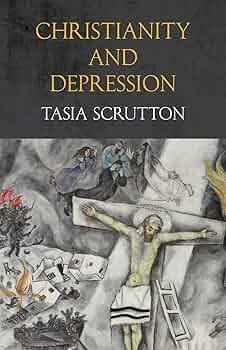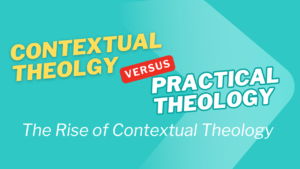Christianity and Depression. By Tasia Scrutton. London, UK: SCM Press, 2020), xvi + 236 pp.
Tasia (Anastasia P.) Scrutton is an Associate Professor at the University of Leeds in the School of Philosophy, Religion, and History of Science. Her research focuses on the
interaction between religion and mental health and philosophical approaches to emotion and psychiatry. More generally, she is interested in the relationship between
religion, healing, and wellbeing. Christianity and Depression examines the different ways Christians interpret depression and the theological and pastoral implications of these
interpretations.
The introduction discusses several caveats that help understand her approach. Perhaps the most crucial takeaway is Scrutton’s understanding that a person’s
interpretation of depression will shape his or her experience of the condition. Chapter one discusses the interpretation that sin causes depression, and chapter two discusses the
interpretation that demons or evil spirits cause depression. Scrutton emphasizes that both interpretations have a voluntaristic understanding of depression at their core in
which errors of omission and commission cause depression. Recovery from depression, therefore, comes through lifestyle changes like giving up sinful behavior, praying more,
reading the Bible, and other spiritual activities. The third chapter looks at the interpretation that depression is a biological disease. Scrutton notes that these biological
explanations of depression work similarly to interpretations involving sin and demons. These explanations often focus on lifestyle changes and medical intervention as modes
of recovery, which may make sufferers feel guilty because they never did or acted the way they should have to avoid depression.
The fourth chapter examines the understanding that depression is a Dark Night of the Soul. Scrutton observes that sin and demonic accounts of depression focus on spiritual failure or distance from God. Dark Night explanations, however, view depression as a condition given to someone by God in light of their piety. Linked to the Dark Night of the Soul interpretation, chapter five examines the understanding that depression is potentially transformative. This interpretation is based on believing that God can bring good from evil. Scrutton maintains that although suffering is evil, people holding this view can find meaning and value in their suffering and are motivated to seek recovery.
Scrutton begins to develop her response to depression in chapter six. The chapter looks at the concepts of divine passibility and impassability. Scrutton shows how holding to either one of these positions can help people positively interpret their depression experiences. She argues in chapter seven that stigmatization is usually still present in the church community regardless of one’s position on passibility and impassability. Scrutton develops her response in chapter eight. She claims that the best way for Christians to understand depression is to see it no differently theologically than any other form of physical illness or suffering. She also emphasizes that Christ stands in solidarity with those with the condition.
Scrutton’s writing style is an engaging blend of scholarly thoroughness and easy reading. She has written the book with a broader audience in mind, making it more accessible to general readers than her other academic work. The book has many strengths, the most prominent being her categorization of different interpretations of depression. This is helpful because it gives readers an understanding of the different lenses through which people view depression. Recognizing that there are different interpretations helps us realize that there is no one-size-fits-all approach to
understanding and responding to the condition. Scrutton’s discussion also helps us consider how conducive our own interpretations are.
Another strength is how she moves the focus of depression, and mental illness in general, away from interpretations of individual sin and demonic oppression towards interpretations more focused on societal sin and demonic activity within systemic structures. Understanding depression in the context of individual sin and demonic oppression is recurrent in the Pentecostal (Spirit-empowered) community. Scrutton’s social interpretation may help the Pentecostal community look beyond individual responses that revolve around altar ministry and deliverance to consider how it can be involved in change at a societal level and thereby help people with mental health challenges like depression.
Scrutton operates in the UK outside of the Pentecostal movement, so her focus on depression largely omits discussion about depression in Majority World contexts. This critique is not to the book’s detriment because the book accomplished its aims. But one wonders how an analysis of Majority World interpretations might have added to her discussion. Also, considering the breadth of Pentecostalism as a global movement, although the text is informative, it might not meet readers’ needs outside the Western context. With this being said, Scrutton still provides an illuminating discussion on depression and Christianity that will help readers reflect theologically on depression and its interpretation in new ways, thereby contributing to and enriching the development of Pentecostal theology.
This book review was originally published in Spiritus: ORU Journal of Theology 7, no. 2 (2022): 14.






